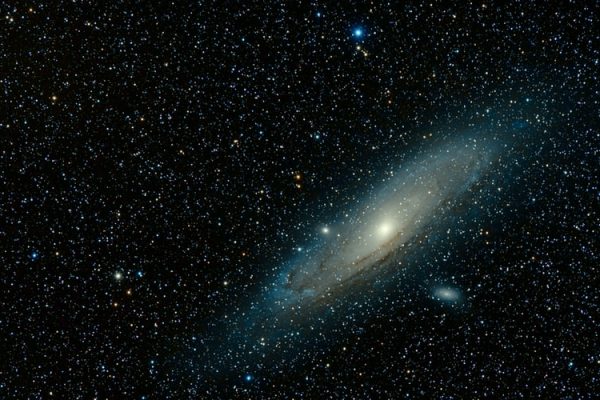In the traditional view, it is told that the Islamic Golden Age mainly lasted for two centuries (8th – 10th), with some historians arguing that it lasted up to the 12th-13th century. But after the findings of new manuscripts in the 20th century and research in the 21st century, modern historians have set the Islamic Golden Age for to lasting around eight centuries, from the 8th to 16th [1]. Many even take it up to the 17th century [2]. Furthermore, it has even been found that highly developed astronomical instruments were being manufactured in Iran from as early as the beginning of the 18th century[3]. But why and how did this Golden Age of science come to an end?
Both the history of the rise and the decline of science in Muslim lands is disputed amongst historians of science [4]. We have to keep in mind that this is not the death of an individual who dies at a particular time. This is instead the fall of a civilization, so the decline is a process. Here, then, are a few of the reasons why there was a general decline in the Golden Age of science in the Muslim world:
Faith Replaced Reason
In the traditional sense, it is said that the ‘anti-philosophical revolt’ by Abul Hasan al-Ash’ari led to the demise of Islamic-Arabic science. Their greatest champion, Abu Hamid al-Ghazali wrote ‘one book’ which ‘destroyed everything’.
These sayings are nothing but anti-Islamic slur. Abu al-Hasan al-Ash’ari’s doctrine wasn’t anti-philosophical. Ash’arites were great philosophers (e. g. Abu Bakr al-Baqillani). They only wanted to stop the mixing of Islam with Greek thought and the contamination of Islam. Their proposal wasn’t even anti-Greek. For example, Ash’arite theologian Fakhr al-Din ar-Razi took from the Greeks what he considered correct. They just wanted to stop the Hellenization of Islam. They didn’t have any problem with science whatsoever. Ash’ari was a logical person. Maturidi’s doctrine was even more dependent on logic [5]. Even Abu Hamid al-Ghazali writes that doing philosophy and science is no problem at all, the problem only occurs when philosophers come to deal with theology [6]. Furthermore, he writes in his autobiography: “A grievous crime indeed against religion has been committed by the man who imagines that Islam is defended by the denial of the mathematical sciences” [7].
Professor George Saliba of Columbia University holds that al-Ghazali’s writings are indifferent to the flow of science in Muslim lands – but, it may be that his writings made things better for Muslim-led science. Because after his book, Tahafut al-Falasifa (The Incoherence of the Philosophers), Muslims pretty much left the dependence on Greek philosophy and started to innovate independently. Some of these post-Ghazali period scientists are Nasir al-Din Tusi, Ibn al-Nafis, Kamal al-Din Farisi, al-Jazari, Taqi al-Din, Piri Reis, and Jamshid al-Kashi. George Saliba goes on to declare the ‘Age of Decline’ as the ‘Age of Fecundity’ and ‘The Golden Age of Islamic Astronomy’. So actually, much of the writings of the Ash’arites were positive to the flow of science in the Muslim lands [8].
The claim that ‘faith replaced reason’ can actually be refuted in only one sentence – numerous Muslims were at the same time both a scientist and a theologian (e. g. Nasir al-Din Tusi, Ibn al-Nafis, Qutb al-Din Shirazi, and Al-Biruni to name a few). If not a scholar of Islam, most were at least a pious or proud Muslim (e. g. Ibn al- Haytham, Al-Jazari, Taqi al-Din, and Ibn Sina).
Mongol Invasion and the Destruction of Baghdad
Many scholars sight the destruction of Baghdad as the beginning of the demise of the Islamic Golden Age of science. This claim, however, is largely untrue. The Mongol invasion stirred up many problems for the Muslims, but the sack of Baghdad is not a strong enough reason for the decline in Muslim-led science. Baghdad fell in 1258, but before that, the scientific discoveries were in decline anyway. Baghdad had left its glory behind. Amusement and entertainment was pretty much the only thing going there at that time. Drinking, playing worthless games, and nefarious acts were widespread. In such conditions, science was not going to flourish [9]. Though it was still the intellectual powerhouse of Islam, sooner or later, regardless of the Mongol invasion, science would have demised anyway.
Obliteration of Knowledge
The Mongols killed 8 to 20 million people in Baghdad. One historian of the time suggested that the blow was so devastating that the population would take a thousand years to recover. He was not far wrong. The population of the region finally reached its pre-Mongol levels again just a few decades ago [10]. The Mongols had destroyed every place of learning – including the madrasah, the masjid, and libraries. But afterward, Baghdad again rebuilt these and built them in greater quality. Though many of the hundreds of thousands of books were destroyed, Nasir al-Din al-Tusi saved as many as 400,000 books [11]. It is important to recognize that this kind of destruction of knowledge is a strong impediment to a civilizations academic development, and this event does, in fact, play a large role in the decline of the preservation of Muslim-led scientific discoveries.
Destruction of the Trade Routes
The Mongols also destroyed the trade routes of Muslim lands [13]. This caused a huge economic problem for many of the conquered Muslim populations. In addition to this, because of the European age of discovery, the Silk Road lost its importance along with other trade routes connected with Muslim lands. Europe also funded its science age of discovery with much of the money they got from their colonies from Muslim nations. This played a huge role in the decline of the Islamic Golden Age of science.
The Crusades
Fighting the crusades for more than two centuries and exerting enormous amounts of manpower to get the Crusaders out of Muslim lands also crushed the regional economy and weakened Muslim cities. When a nation is engaged in war, how can it give focus to scientific development? As Islamic nations were forced to focus their attention on defending their borders, the interest and investment in science went in decline for obvious reasons.
Losing Spain
Spain was another intellectual powerhouse of Islam, with Cordoba as one of the greatest cities in the world by the 10th century. When Muslims lost Spain, they lost a huge center of science. And what did the Christians do after winning back Spain? Ulick Burke writes in his history of Spain: “The institutions that had flourished under the Moslem, died when the Moslem departed; and after four centuries of light and learning, Andalusia fell back, under the Christian rule, into a condition of ignorance and barbarism, nearly, if not quite, equal to that of the northwestern provinces of the peninsula”. Losing Spain meant losing a huge center of science for the Muslim world.
Lack of Money and Population Problems
Ibn Khaldun writes that money is needed for science to flourish. It is absolutely true. Science is in no way possible without a good amount of funding. But because of wars, the destruction of trade routes, and later the colonization of their peoples, Muslims had lost their money. The population of the Ottoman Empire was 17 million in the mid-19th century as opposed to the population of Western Europe, which was 190 million. During that time, the population of Russia and Eastern Europe was 274 million, Britain was 30 million, France was 37 million, Spain and Portugal were 20 million, Italy was 24 million, Germany was 32 million, and Austria was 32 million [14]. Not having the money or manpower meant that being a leader in scientific discoveries would be near-impossible.
Natural Disasters
The decrease in the Nile River’s water level in 968AD resulted in a serious drought and the death of more than 600,000 people. Famine and infectious diseases also followed this. In addition to this, the biggest disaster of the time, the Black Death, destroyed the Islamic world more than it destroyed Europe. Egypt, Syria, and Iraq lost two-thirds of their populations [14]. This had monumental damages to the field of scientific discovery in the region.
Leaving the Practice of Islam
Muslim scientists generally were devout believers who were loyal to Islam [15]. Even non-Muslims at the time were highly influenced by Islam [16]. Ibn Khaldun explained that excessive consumption that led to waste was not only contrary to the spirit of Islam, it also corrupted and undid both the civilization and the individual [17]. Muslim scientists were most clearly inspired by Islam [18], and leaving the practice caused big problems, causing even ethical problems. If the ethics are not right, then the people are not going to do the right thing. This is what occurred in much of the Muslim lands.
Changing the Language of Science
Arabic was the international language of science for at least 700 years [19]. The sudden change of language, therefore, caused an enormous problem. The books of science from Europe were now coming in foreign languages which many Muslims didn’t understand. So they couldn’t bounce back. We can see that Nasir al-Din Tusi’s astronomy was still studied in Iran in the 20th century, but much of the exchange and learning of science was hindered because of the lack of linguistical knowledge. Europeans took these scientific discoveries from Muslims and established their own renaissance, but Muslims weren’t able to take from the updated European science in return because of language barriers.
Strife among Muslims
Throughout history, starting from the reign of Ali ibn Abi Talib, Muslims have been in conflict among themselves for power. The Caliph of Science, Ma’mun, killed his brother Amin after winning the war against him as well. Because of this fight for power, Muslims fell behind on scientific discoveries and development. Progress is not possible while in war. Even today we see that Muslims are not united. One religious sect attacks another as if they have a duty to be in a war! Muslims must unite for a greater purpose, and reclaim their history of scientific discoveries.
Conclusion
Finally, I would like to point out that the study of Islamic Science has only had a cursory study, as George Saliba concluded in 2007. There has been no study done on the later centuries. So, there might even have never been a fall of Islamic science, actually. Yes, there might have been a decline, because by definition it means a comparison between two levels, one lower than the other, but this does not mean there was a total stop to Islamic scientific discoveries. George Saliba describes it as ‘when a civilization becomes a consumer rather than a producer of scientific ideas’.
When one culture starts to produce more and better science, the other culture will start to look like they have declined. So while the scientific production might have still been developing in Muslim lands, it just couldn’t keep up with Europe’s pace. This though, cannot be taken as a final statement; nothing can be finalized until knowing what is in the unstudied manuscripts.
According to Joseph Needham, at the beginning of the 16th century, the scientific production of the Islamic world, China, and Europe were just about the same. Now, why did Europe rise and the others decline? This needs detailed research, but for now, I would like to make some comments on this. Muslim lands were starting to be colonized by Europeans at the beginning of the 17th century and were almost fully colonized by the 19th century. The ‘discovery’ of the new world allowed Europeans to gain a huge amount of money, which they then used to establish research academies with little to no expenditure of their own [20].
Europe used Muslim-led science to get back on track. But there was a brief point in history where both the European and Muslim civilizations were at the same level of development. Europe was using Muslim texts and Muslims were also starting to use European texts. Taqi al-Din ibn Maruf, the famous astronomer and engineer, used the multi-lingual dictionary written by Ambrosio Calepino to become a pioneer in his field. Muslims and Europeans were projected to stay side by side in scientific discoveries, but because of colonization, everything got disrupted.
In conclusion, with the same voice of George Saliba, the decline of the Islamic Golden Age of science wasn’t caused solely by Al-Ghazali’s book or by the Mongol invasion, but rather because of numerous external world circumstances and historical events that hindered much of the scientific development in the Muslim world.
References:
- George Saliba, Islamic Science and Making of European Renaissance (The MIT Press, 2007)
- George Saliba (1994), A History of Arabic Astronomy: Planetary Theories During the Golden Age of Islam, pp. 245, 250, 256–57. New York University Press, ISBN 0814780237.
- Muzaffar Iqbal, Science and Islam (Greenwood Press, 2007) p: 124
- George Saliba, Islamic Science and Making of European Renaissance (The MIT Press, 2007)
- M.M. Sharif (edt), A History of Muslim Philosophy (Allgauer Heimatverlag GmbH, 1963)
- Abu Hamid al-Ghazali, Munqidh min al-Dalal (Translated by W. Montgomery Watt as The Deliverance from error, George Allen and Unwin Ltd) p: 35-36
- Abu Hamid al-Ghazali, Munqidh min al-Dalal (Translated by W. Montgomery Watt as The Deliverance from error, George Allen and Unwin Ltd) p: 34
- Did Islam Subvert Science? – Arun Bala (muslimheritage.com)
- Abul Hasan Ali Nadwi, Saviours of Islamic Spirit (Academy of Islamic Research and Publications, 2nd edition, 1976)
- Ehsan Masood, Science and Islam – A History (Icon Books, 2009) p: 91
- George Saliba, Islamic Science and Making of European Renaissance (The MIT Press, 2007) p: 243
- William Draper, A History of Conflict Between Religion and Science (Temple of Earth Publishing) p: 57b
- McClellan, James E. III; Dorn, Harold, eds. (2006). Science and Technology in World History (2 ed.) p: 103-115
- Why The Islamic World Fell Behind In Science – Ekrem Bugra Ekinci (DailySabah)
- Karen Armstrong, A History of God (London: Vintage Books 1999) p: 203-206; History of the Islamic Golden Age: Religion, Science, & Culture in the Abbasid Empire (Great Courses Plus)
- Robert Irwin (edt), The New Cambridge History of Islam , vol. 4 (Cambridge University Press, 2010) p: 595
- Salim T. S. al-Hassani (edt), 1001 Inventions: The Enduring Legacy of Muslim Civilization, Reference (4th Edition) Annotated, Text Only, 2017/The World / Social Science and Economics
- For few examples: Muzaffar Iqbal, Science and Islam (Greenwood Press, 2007) ch: 3
- It’s time to herald the Arabic science that prefigured Darwin and Newton – Jim Al-Khalili (The Guardian)
- George Saliba, Islamic Science and Making of European Renaissance (The MIT Press, 2007) ch: 7





